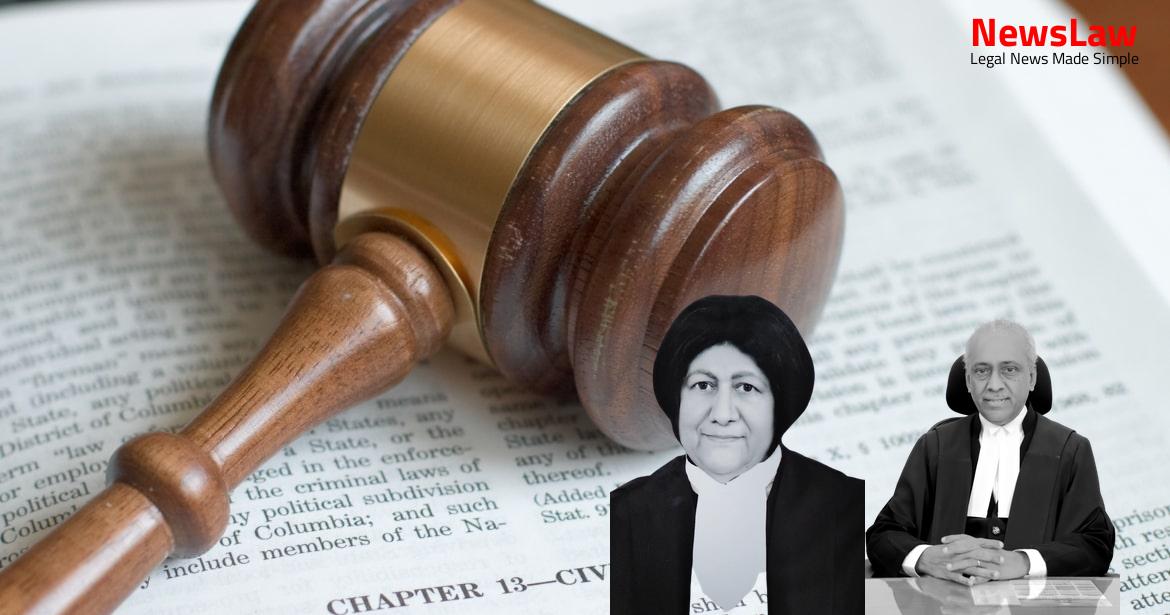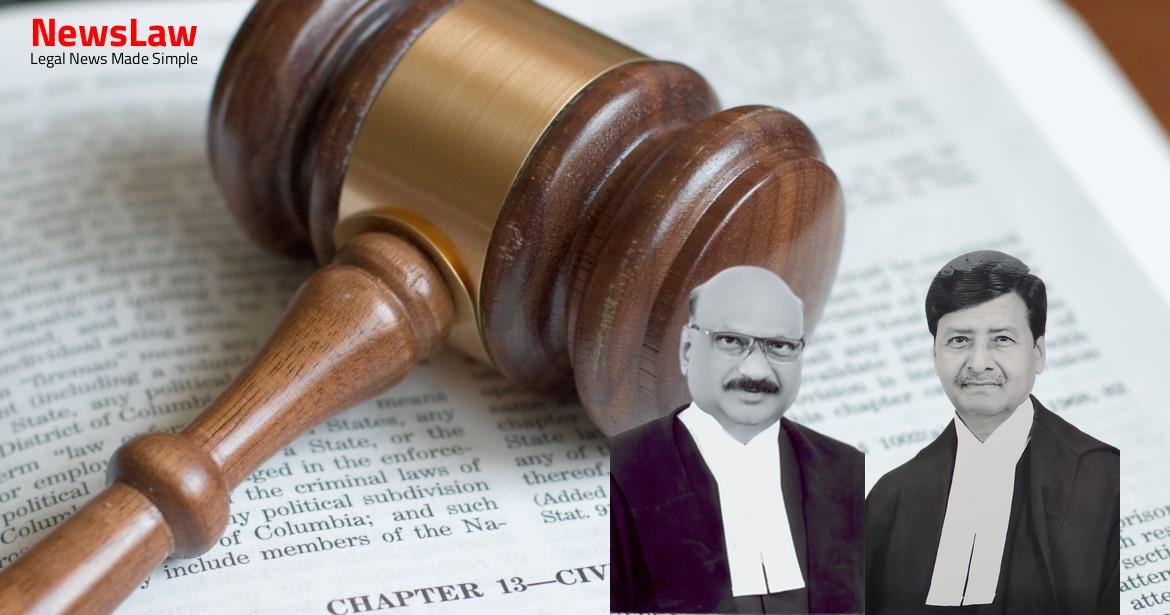In a recent legal case, the court’s meticulous legal analysis and rationale behind granting an interim stay offer valuable insights into the judicial process. The emphasis on thorough legal reasoning underscores the importance of upholding justice and fairness in legal proceedings. Let’s delve into the details of this intriguing case focusing on the court’s legal interpretation.
Facts
- The High Court granted a stay of all further proceedings in both complaints filed by the petitioner against the Respondents 1 to 3 under various sections of the IPC.
- Two complaints were lodged by the petitioner, one related to loan fraud and the other to voter fraud, with FIRs registered by the police accordingly.
- The cooperative bank involved is governed by the Multi-State Cooperative Societies Act, 2002.
- The petitioner filed counter affidavits to the criminal petitions and the High Court granted a stay of further proceedings in both quash petitions.
- The criminal complaints involved allegations from 2016-2019 and 2020, despite the petitioner association being registered only in 2019.
- The High Court reasoned the stay based on acrimony surrounding elections, writ petitions filed challenging election processes, and overlapping allegations of fraud in the writ petitions.
- The petitioner’s counsel argued against the stay citing cognizable offences, legal precedents, and erroneous views on disputes arbitrable under the Societies Act.
- The High Court’s order was challenged by the petitioner citing various legal precedents and the impact of the stay.
- Multiple writ petitions, complaints to police and RBI, ministerial involvement, and court orders were part of the overall dispute and legal proceedings.
- Various orders and applications were filed by both the petitioner and the respondents in relation to the election process and fraud allegations.
Also Read: Challenging Conviction: Legal Analysis Spotlight
Issue
- The term of office of the erstwhile Board of Directors of the Cooperative Bank was set to expire in April, 2020.
- There was a need to address the issue of the expiring term of the Board of Directors.
Also Read: Analysis of Contempt Charges for Breach of Undertaking
Arguments
- Courts normally do not interfere with interim orders passed by the High Court when the main matter is pending before it.
- In Neeharika case, the concern was about courts passing innocuous orders without reasons, not about taking coercive steps.
- In the current case, the High Court had justifiable reasons to grant a stay, as recorded by the Judge.
- The tendency to file criminal complaints during elections can be considered by courts when challenges are made to the initiation of prosecution.
- Reiteration of parameters from State of Haryana vs Bhajan Lal case
- Frowning upon cryptic and non-speaking orders like ‘no coercive steps shall be adopted’
- Recognition of abuse of process of law to convert civil dispute into a criminal dispute
- Elaborate reasons given by High Court in the impugned order linking allegations of bank fraud to proceedings concerning allegations of election fraud
- Neeharika principles allow for interim orders in exceptional cases with caution and circumspection, with brief reasons
Also Read: Land Dispute: Court’s Analysis on Condonation of Delay
Analysis
- Petitioner disguised their real motive with high moral and legal language.
- High Court granted stay on further proceedings due to glaring facts and shocking background.
- Petitioner’s contention of High Court bias due to civil writ proceedings was unfounded.
- Petitioner attempted to convert election dispute into a criminal case.
- Petitioner’s history of disputes related to elections and title conferment.
- High Court saw through petitioner’s tactics to divert focus to loan fraud allegations.
- Petitioner’s association registered in 2019 began legal actions against elections in 2020.
- One of the cardinal principles evolved in Bhajan Lal (supra) is extracted in paragraph 37 of the decision in Neeharika.
- The petitioner cannot rely on the ratio in Mohd. Allauddin Khan and K. Jagdish cases.
- The decision in N.N. Global Mercantile Pvt. Ltd. also does not support the petitioner.
- Reference to Section 84 of the Multi-state cooperative Societies Act, 2002 in the impugned order is only for dealing with admission of members.
- The High Court was justified in granting interim protection to the Respondents 1 to 3 to uphold the supremacy of the ballot.
Decision
- Returning Officer appointed in February, 2020
- Applications for stay dismissed
- Earlier granted stay vacated
- Vacate stay petitions closed
- Elections held as scheduled on 20.12.2020
Case Title: AP MAHESH COOPERATIVE URBAN BANK SHAREHOLDERS WELFARE ASSOCIATION Vs. RAMESH KUMAR BUNG (2021 INSC 346)
Case Number: SLP(Crl) No.-003869 / 2021



